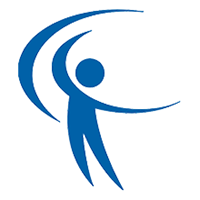De Nederlandse MedTech-sector wil in 2035 tot de Europese en mondiale top behoren. Met het ‘Groeiplan MedTech – Een bijdrage aan het toekomstig verdienvermogen van Nederland’ presenteert de sector een ambitieuze agenda voor de komende tien jaar. De inzet: een … Read More

The Dutch use case focuses on two main mental diseases and their interplay: Major Depressive Disorder (MDD) and Eating Disorder (ED). For both diseases, DAISY will develop, research, and validate AI-based tooling for the diagnosis, treatment decision support, and prognosis by the analyses of multiple sources of data assessing the status of patients.
The first Turkish use case focuses on Major Depressive Disorders such as melancholia, and catatonic, seasonal, and psychotic depression. Approximately 322 million people have depression. These depression rates have continued to increase over time, especially in low-to-middle income nations. This makes it one of the leading causes of disability around the world, along with anxiety.
Depression ranks 4th among all medical diseases in terms of disability due to its high prevalence, chronicity, job and social losses it causes, and negativities in current activities. It is also a disease with high mortality due to the high risk of suicide. It is not easy to identify the subtypes of depression and predict the response to treatment. This poses a significant clinical challenge, as treatments vary significantly depending on the initial diagnosis. Incorrect and late diagnosis increase mortality and morbidity rates as it brings with it wrong and delayed interventions.
Neurofeedback is a computer-supported therapy procedure for clinical use, in which selected parameters of the patient’s own brain activity are made perceptible. For this purpose, brain activity is measured using e.g. Electroencephalography (EEG), functional near-infrared spectroscopy (fNIRS) or functional magnetic resonance imaging (fMRI) in real time on the surface of the head (neuro), which influences the audio, visual and/or tactile feedback animation.
For a light and continuous support during day-to-day life, the project aims to design and deploy a virtual therapy assistant that supports patients in addition to other means of therapy. The agent takes the role of a daily companion who collects and provides behavioral data such as social interactions, contextual parameters or in-situ questionnaires to enable self-reflection about behavioral patterns or the influence of others on situations that can increase the chance of a depressed phase.
























